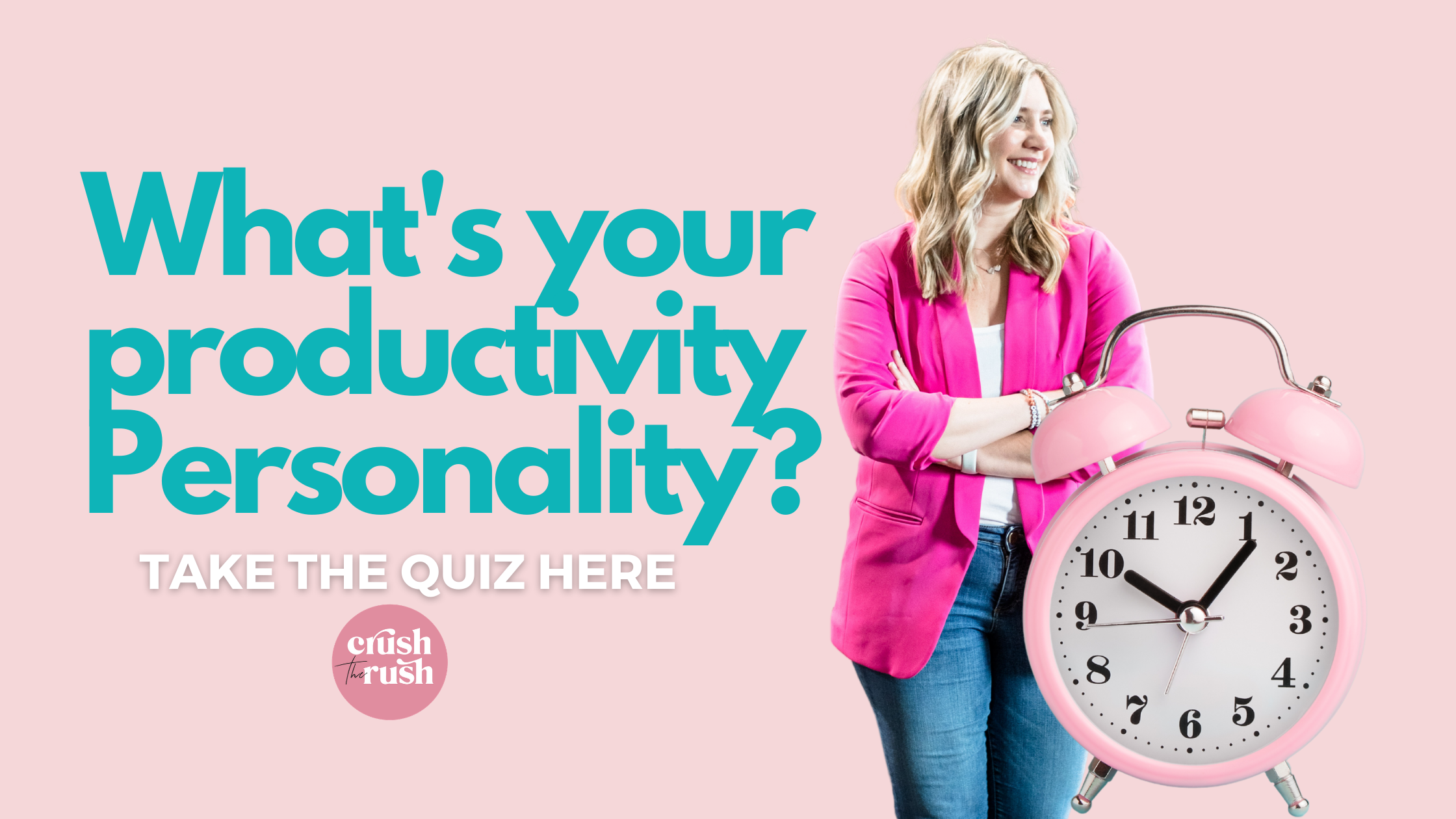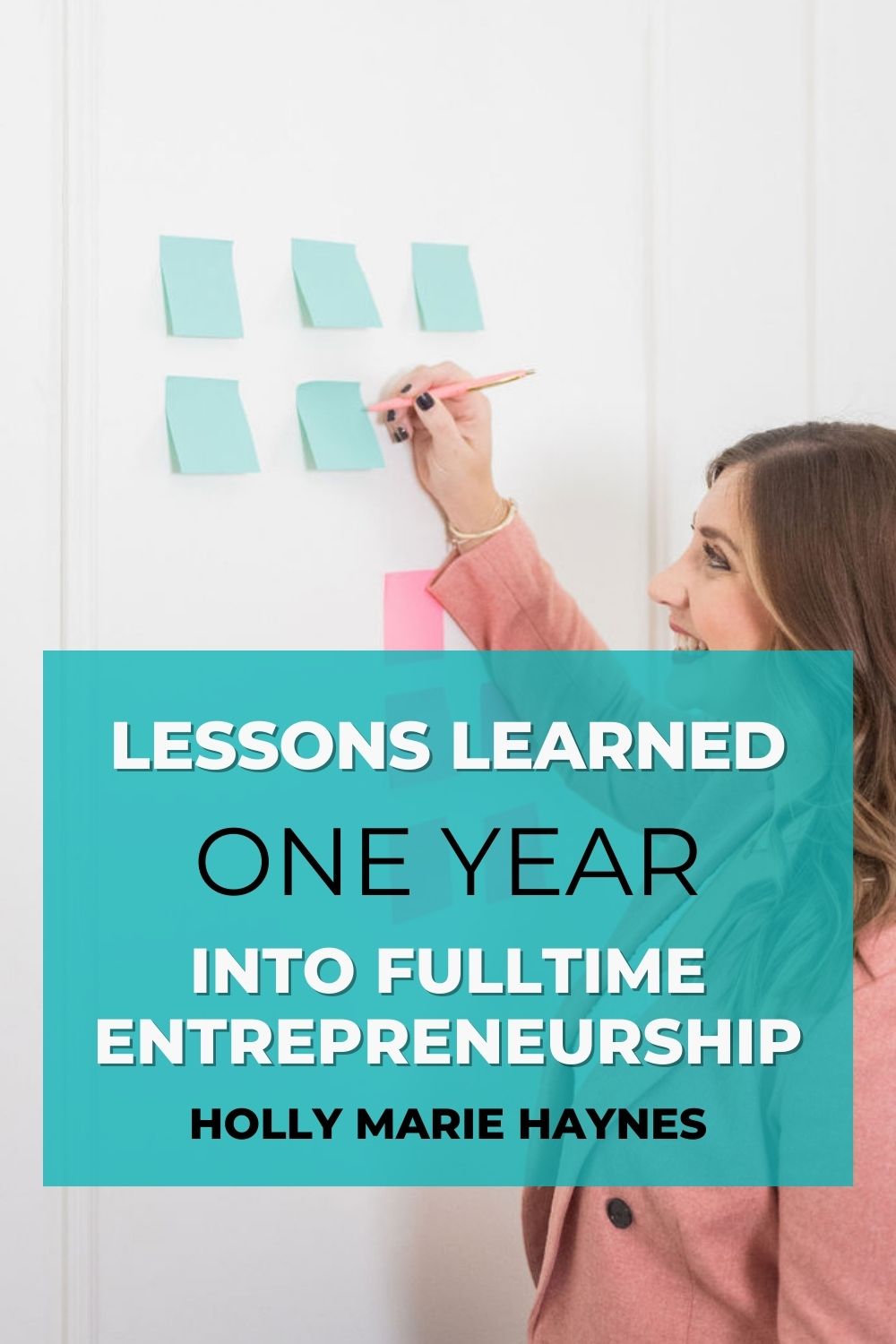I honestly can't believe that it has officially been one year since I stepped away from my corporate career. It feels like yesterday in some ways, but also feels so different. I had a friend reach out to me earlier this week whom I haven't chatted with in a while, and she was like, "HOLLY, your bus stop dream came true!"
My Bus Stop Dream
If you haven't heard this story, when my girls started kindergarten (before the pandemic hit), their bus came at 8:35. Which because I was working my corporate job, meant I couldn't put them on it. Or get them off. Thankfully my boss was very flexible, but the sight of two little 5 year olds getting on the bus and I couldn't be there ever, was enough to make me re-think everything. Ironically then Covid happened. And there was no bus, but we were all home and I never went back.
I have shared with my clients that figuring out a schedule and a routine post-corporate is what I call "Unraveled" and one day I'll write a book about it. It literally is me unraveling myself from all the "survival tips" I put in place when I was working 17 hour days and building this business. Untraining your brain from habits over a 20 year period is hard. And for the better part of last year, I felt lost. I didn't have to work at 6 am, but should I? I have been successful this year, but can I keep it up? Should I really take a vacation?
I have insecurities just like you do. The good news is that a year in I do have a good idea and what is working and what is not. In today's blog, I thought it would be fun to do a year in review.
What Didn't Work: #1 Ads
A lot of coaches will share what worked, but I also think it is important to share what doesn't work. So let's start there. I was in a very high-level mastermind surrounded by men and women who were making 7+ figures and they all had great success with ads. When I looked at our business model, we had the framework, so we ran them. They didn't work.
A few lessons learned about ads
- Don't run ads unless you have a proven funnel already built and multiple launches under your belt. (which we did)
- Be prepared to spend money to make money.
- Unfortunately $60k in and we had mediocre results. The good news is the ad agencies we worked with were full-service and helped us with sales page copy, funnels, emails, and more. So it wasn't a total loss, but we did not make our money back.
- The final lesson: find your "client attraction tool". What others did five years ago won't work. Big fish vs little fish - you can't compare yourself to everyone else.
#2 Working at the Kitchen Table
This was honestly a bad habit. When I was working full time I just carried my laptop around with me and worked anywhere. I realized quickly I had zero boundaries and if I wasn't careful, would work myself to death. I set very specific business hours and when I was working on my business, it wasn't at the kitchen table or on the couch. I created a workspace (actually two) and I either work in there or out of the house, so there is a clear boundary with our family when I am working and when I am not. I also have more free time, because I am super focused when I do need to work and have fewer distractions.
#3 Complicated systems
Going into this year, I tried to do everything at once and it made things complicated. We hired an ad agency and a team, launched our membership, and several other things at once. It was too much and I was the bottleneck. The bottleneck meant I was working too much. Which I guess you could say were growing pains. In Q1 of last year, I was up at 5 am reviewing funnels for our ad team. This wasn't what I envisioned, but I didn't have anyone else on our team yet that knew the details like I did.
About 3 months in, we scaled back, paused the ads (they really are like pouring fuel on the fire), focused on building the team first and making things simple. How could I get more off my plate? Were there emails my team could answer? What automation could be set up? What were ways to streamline my schedule?
A great exercise in understanding where to outsource is to make a list of everything you do. Then next to it decide if it is a priority, if you can delegate, or delete it.
In the end, we ended up hiring our awesome website team (who take care of all the back-end updates) and then streamlined (and still are) the tasks. So podcasting, as an example, is automated through an application that goes to my team, reviews it, and then sends it to me. If it's a yes, we built automations to take care of interview questions, calendars, etc. Probably saving me hours. I also streamlined my calendar so I only do podcast interviews once a month instead of any day of the week.
Lessons Learned After One Year of Full-Time Entrepreneurship
There were also a few lessons learned, like picking the right tools. I hired someone to set up Dubsado for me and never touched it. It was too complicated. I need things to be simple. A year later, after we had a little time under our belt, we switched to Clickup and started actually seeing our activities streamlined. You don't need a fancy system at first. You need to work through it and understand what you need. Then layer in the system or software.
In this scenario we slowed down, defined roles, wrote out SOPS (standard operating procedures), and really simplified all our processes.
Do you love these tips? Take the Productivity Personality Quiz to get a Netflix-style binge-worthy resource list to help you find your focus and is customized to you! Take the quiz here.

What Worked
1) Outsource before your ready
This goes back to creating simple systems. One of my favorite mentors, Chris Harder, has a
podcast episode where he talks about all about the things you should outsource. Those four things are:
- Copy. Knowing how to use the right words at the right time is a science and so beneficial.
- Ads (you know that story)
- Website
- Bookkeeping
Think about those four categories and where you can outsource so that you have more time to be creative with your offers and what you are building.
Here is what we outsourced:
- Community Manager
- Ops director
- Podcast. Editing and SEO behind that.
- Website
- Copy and Special Projects
2) Trust Your Gut
My intuition is always right on. If something felt off, it usually was. If something felt right, it was REALLY right. I had a goal in 2022 to not create any new products or services and just simplify. But in the fall I had this idea about sharing what has really worked for us and that is networking. All my clients were coming from podcasts or summits where I was teaching live. My ROI on networking vs social media was 10-fold. So I trusted my gut and created
Anti-Social School. I wrote the course on the plan on the way home from Europe and launched it two weeks later. I knew in my gut it would be awesome. And it is. The way I designed it is so different between the podcast and the live lessons. And it is because it came from a place of feeling very aligned.
3) Leaning into Coaches and Mentors who Specialized in What I Didn't.
Hire mentors who are 1-2 steps ahead of you, but also running a business the way you want yours to be run. I invested in mindset coaches (for a full year), therapists, and coaches who either had a skill set that I didn't have or ran a successful business in a way that I wanted to and were ahead of where I was. It has been magic every time.
I will never not have a mentor or a coach helping me.
My Word For 2023
WITH THAT said I finally picked my word for this year and it is alignment. Because business isn't a one size fits all box. And I am focused on doing what feels good, trusting my gut, surrounding myself with amazing, smart inspiring women, and getting in the room and networking with as many people as I can. Because in the end, that was fun. And that is what worked.
Remember. Say no to the good so you can say yes to the great.
You always have something to offer.
Take fast action. Just keep moving.
Or as Dory says, just keep swimming.
Looking for more on this topic and your High-Level Action items? Check out the Strategy Lab in the Crush the Rush Club!










